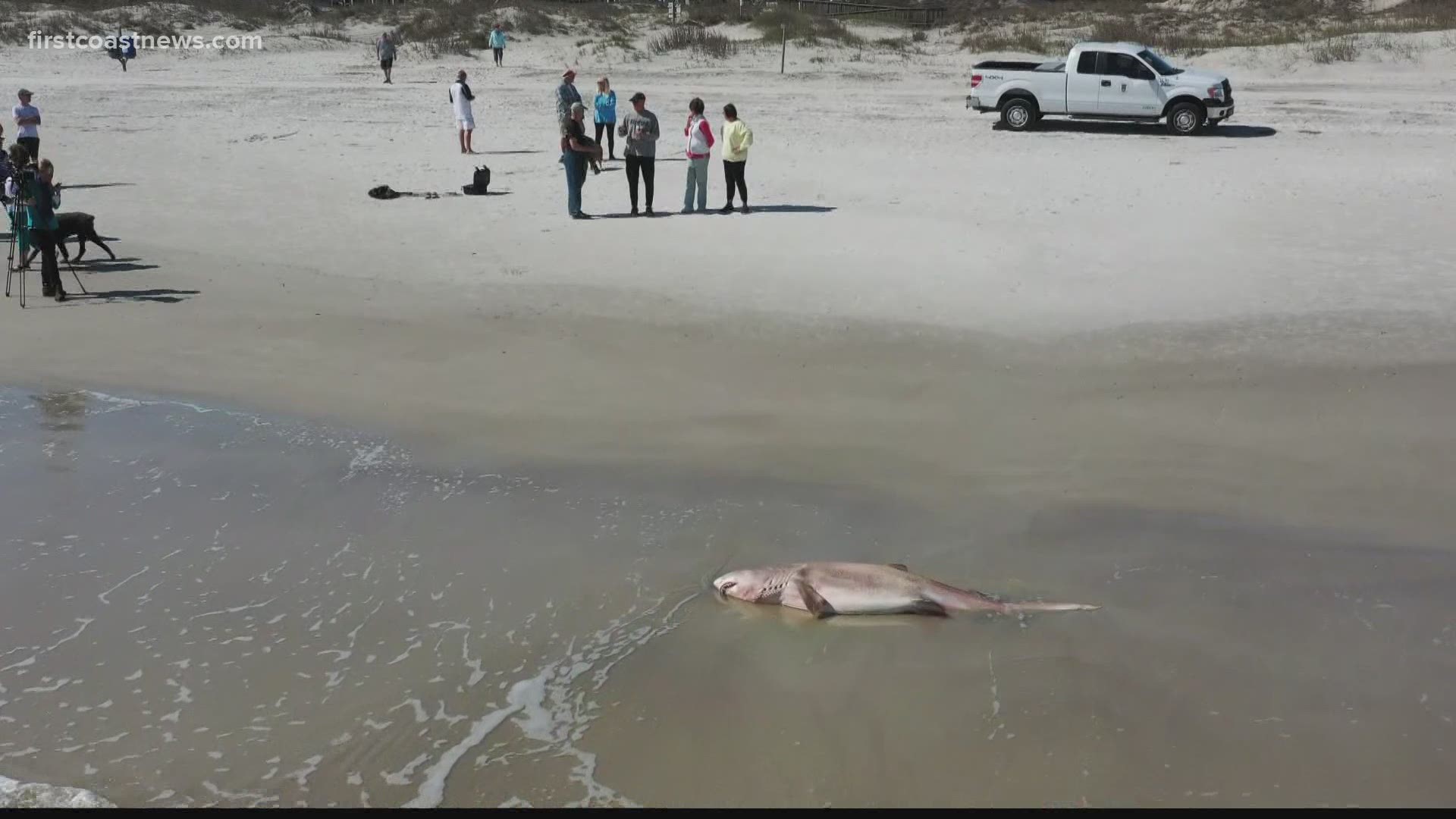ST. AUGUSTINE BEACH, Fla. — (Note: The video above is from a related story.)
The body of a sand tiger shark washed ashore on St. Augustine Beach Tuesday morning.
The 8'4'' foot sand tiger shark is a female, and it drew a crowd of curious onlookers to the beach. This kind of shark is in these waters in the winter and spring.
Dr. Jim Gelsleichter is shark expert and an assistant professor at the University of North Florida.
"[Sand tiger sharks are] slow moving," Gelsleichter explained. "They have teeth that stick out. It looks mean, but they’re not really. They’re not really dangerous to us. They have been found to bite humans every now and then."
Gelsleichter says sand tigers are protected because "they reproduce only once every other year. Each mom is only making two babies every other year. Basically the growth of the population is really, really slow."
Gelsleichter said the toothy, mean hurts the species' reputation
"What happened in other parts of the world is people killed them because they looked some fearsome," Gelsleichter said. "As a result of that some of the populations became at risk."
He said it is not clear yet why this protected shark washed ashore.
On site, a wildlife team took samples for testing and found a hook deep in her throat. It's not clear if the hook was the cause of death.
The shark had been tagged, right by it’s dorsal fin. Gelsleichter says that is the kind of tag federal authorities use to track and better understand sharks. However, he says it appears the part with the identifiable information is gone.
"That's unfortunate," Gelsleichter said. "This happens to the tags every once in a while."
That could be a hurdle for conservationists seeking more information about the animal.
While FWC does not tag sharks itself, it does provide the following guidance for fishermen who reel in a shark that has been tagged by the National Oceanic and Atmospheric Administration or Ocearch:
- If it is safe to do so, record the information on the tag and leave it intact and attached to the shark.
- If it is not safe to read the information on the tag, remove it by cutting the monofilament tether at the base of the tag. Do NOT attempt to pull the tag out.
- Report the shark to the agency listed on the tag.
- Visit the NOAA Apex Predator Program for more information at na.nefsc.noaa.gov/sharks/tagging.html.
The animal washed up on the beach within St. Augustine Beach city limits. A St. Augustine Beach police officer was on scene to ensure no beachgoers interfere with the carcass.
Story continues below.

